Stem Cell Therapy in Kuala Lumpur
Search and Compare the Best Clinics and Doctors at the Lowest Prices for Stem Cell Therapy in Kuala Lumpur
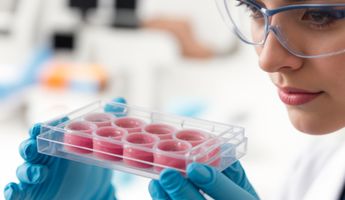
Find the best clinics for Stem Cell Therapy in Kuala Lumpur
With Medijump you can browse 2 facilities offering Stem Cell Therapy procedures in Kuala Lumpur. The cheapest price available is $530 in Kuala Lumpur
Stem Cell Therapy in Malaysia
Price: $ 530
Stem Cell Therapy in Kuala Lumpur
Price: $ 530
Stem Cell Therapy in Selangor
Price: $ 847
Malaysia offers the best prices Worldwide
Price: $ 530
From 5 verified reviews
Princess Hanoo, 13 March 2022
Very nice with excellent doctor..all thankfully for doctor joe really perfect. Well done with perfect hand
TDOX Clinic, located in Jalan Sultan Ismail, Kuala Lumpur, Malaysia offers patients Stem Cell Therapy procedures among its total of 1 available procedures, across 1 different specialties. The cost of a Stem Cell Therapy procedure ranges from RM25,000 to RM120,000, whilst the national average price is approximately RM23,015. All procedures and treatments are undertaken by just a small team of specialists, with 2 in total at the Clinic, and they are accredited by MSAM - Malaysian Society of Aesthetic Medicine
Compare Before & After Photos of _procedure_photos.phpStem Cell Therapy
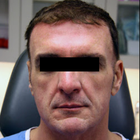
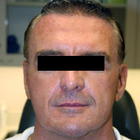
Front view
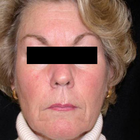
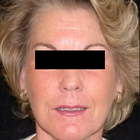
Front view
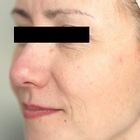
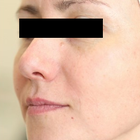
Half-side view
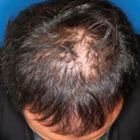
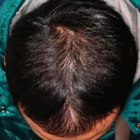
Front view
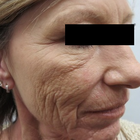
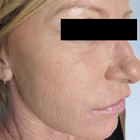
Half-side view
WHY US?
At Medijump, we're making medical easy. You can search, compare, discuss, and book your medical all in one place. We open the door to the best medical providers worldwide, saving you time and energy along the way, and it's all for FREE, no hidden fees, and no price markups guaranteed. So what are you waiting for?

Free

Best Price

Widest Selection

Risk-Free
What you need to know about Stem Cell Therapy in Kuala Lumpur
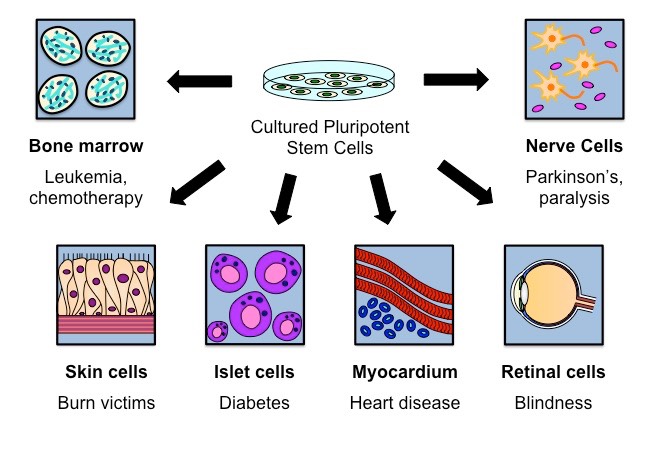
Stem Cell Therapy involves the use of stem cells to treat different diseases. These are non-differentiated cells of a multicellular organism. All the cells in the body are specialized for a specific function but they are the only cells without an assigned function. They can differentiate into any type of cell as and when required by the body and can proliferate rapidly to produce multiple copies of a specific type. Sources of stem cells are embryos and adult body tissues. In the adults, stem cells are present in bone marrow, brain, liver, skin, skeletal muscles, blood and blood vessels. While embryonic stem cells are derived from a blastocyst. Nowadays, the Umbilical cord is being stored under suitable conditions to get stem cells from it if needed. This is useful as chances of transplant rejection are less because stem cells are derived from your own umbilical cord.
Bone Marrow Transplant is the most commonly used method to treat various types of cancers such as lymphoma, multiple myeloma, and leukemia, etc. through stem cells. It is also used to treat brain diseases, cardiovascular diseases and cell deficiencies such as diabetes mellitus. Recently, anti-aging stem cell treatments have gain fame. It is used to restore your youth and beauty.
What is the cost of Stem Cell Therapy in Kuala Lumpur?
The price of stem cell therapy, also known as Stem Cell Therapy, can fluctuate greatly based on factors like the intricacy and specifics of the procedure, the particular health issue being addressed, and the geographic site of the therapy center or clinic. When compared to conventional therapies, stem cell therapy's cost tends to be rather steep.
Yet, when considering the prospective benefits and potential long-term economic advantages, an increasing number of patients are choosing this therapeutic approach. It's crucial to mention that, although certain health insurance firms may cover the expenses of stem cell therapy for specific situations, a number of them do not due to the considerate speculative aspect of the therapy.
What does a Stem Cell Therapy Procedure Involve?
The procedure of stem cell therapy starts with removing stem cells from your body or from the donor’s body. The cells are collected from different body parts depending upon the need. After collection, the cells are processed according to the purpose for which they are extracted. The processed stem cells are injected into the specific area of your body using ultrasound or X-ray guidance. Anesthetics are used and the procedure is done under sterile conditions. It is necessary to make sure that the cells are reaching the desired area so that the improvement is better and quicker. There are three types of stem cell transplant:
- Autologous transplant - your own body stem cells are removed and used. This type of transplant is safer and recovery is quicker because chances of transplant rejection are less as your own stem cells are being used.
- Allogenic transplant - stem cells are obtained from a suitable donor. Matching is done to find a donor whose white cell antigen closely resembles yours. The donor can or cannot be your relative.
- Syngeneic transplant - stem cells from your identical twin are used. In this case, the chances of rejection are low.
Each type of stem cell transplant involves different methods, procedures, and techniques with different side effects and risks. The one suitable for you depends upon your age, health, and physical conditions.
How Long Should I Stay in Kuala Lumpur for a Stem Cell Therapy Procedure?
The length of stay in the hospital varies in accordance with the condition for which stem cell therapy is being done. It is usually a 3 to 4 hours procedure (in-patient) in which stem cells are introduced into the body using syringes or catheters. Different factors are considered to decide the length of your stay in the hospital. These factors are:
- You are not suffering from a fever for the last 24 to 48 hours.
- You have a safe blood cell count.
- You are able to eat and drink.
- Your symptoms such as nausea, vomiting, and diarrhea are under control.
- You have someone with you to look after you.
Your stay in the hospital is longer for an allogeneic transplant as compared to an autologous transplant and you're free to leave Kuala Lumpur the very next day, although it's advised to stay at least a few days in case you have further questions for the medical staff. But of course, these can be asked over the phone/email or directed towards your local medical team back home.
What's the Recovery Time for Stem Cell Therapy Procedures in Kuala Lumpur?
Complete recovery time varies from 2 to 12 weeks when the patient begins to feel pain relief. However, you can return to your routine work a couple of days after going through the transplant. Recovery depends upon your physical condition before and after the transplant. Over a period of 6 to 12 months, further improvements are seen in the patients. During the process, antibiotics and other drugs are prescribed. These drugs prevent transplant rejection and graft-host diseases. Allogenic stem cell transplant takes longer to recover than an autologous transplant.
What sort of Aftercare is Required for Stem Cell Therapy Procedures in Kuala Lumpur?
It is advised to keep in contact with your doctor and to visit them on a regular basis. Apart from this, the following points should be considered:
- Minor pain will be present after going through the therapy - icepacks are effective in this regard. Pain might either be because of inflammation or muscle spasm. Inflammation is common due to your immune system activity. Anti-inflammatory medicines are avoided in the initial period because they can interfere with the healing process.
- Walking is good for your health. Rest is not always the best option for quick recovery. Blood flow and oxygen is needed by the treated area which is provided by light activity and movement.
- Ask your doctor about your nutritional requirements and eat healthy according to it.
- Do some joint stabilizing exercises to aid the healing process.
What's the Success Rate of Stem Cell Therapy Procedures in Kuala Lumpur?
Stem cell therapy's effectiveness, also known as Stem Cell Therapy, can change based on the illness, the age and health of the patient, and the type of therapy used. Although new, stem cell therapy has shown promise in areas like bone, brain, and heart health, it is not always successful due to various reasons, one being the transplant rejection. It is an excellent idea to talk about the possible good and bad outcomes with your doctor before making a choice.
Are there Alternatives to Stem Cell Therapy Procedures in Kuala Lumpur?
Exosomes are being used as an alternative to stem cell therapy. They are lipid bilayer surrounded vesicles secreted by live cells. They contain mRNA, proteins, chaperons, and various signaling molecules. They work as a natural carrier system for the transport of these substances. They function as a messenger within the body carrying information from one cell to the other. Stem cell therapy can be enhanced using exosomes. They help the body’s natural healing ability to increase the pace of recovery. Sometimes, stem cell therapy and exosomes are given together for better results.
What Should You Expect Before and After the Procedure
Before you proceed with the Stem Cell Therapy, it's typical to have a meeting with your medical professional to examine your unique situation, the potential advantages and drawbacks of the process, and your overall wellness. This discussion will help determine if stem cell therapy is suitable for you. Comprehensive diagnostic evaluations may be necessary to fully examine your health status. The medical professional will guide you through the procedure, describing how the treatment is carried out, what it involves, and what to anticipate. The significance of regular physical activity and keeping a balanced lifestyle before the procedure to boost the effectiveness of the treatment shouldn't be overlooked.
Following the completion of the Stem Cell Therapy, you might feel a slight discomfort, redness, or swelling at the injection site, which typically subsides within a few days. Keep in mind that the recovery process post-procedure may take several weeks or months, as the reinstated stem cells function to fix and reconstruct the damaged tissues. Therefore, a degree of patience may be necessary before noticing the advantages of the treatment. Regular follow-up appointments with your medical professional to monitor your body's reaction to the treatment, assess progress, and control any possible side effects, are necessary. Reinforcing healthy habits such as a balanced diet, frequent physical activity, sufficient sleep, and stress control are crucial components of the post-procedure care.
What are Potential Risks of Stem Cell Therapy?
As with any medical intervention, Stem Cell Therapy is not devoid of risk. However, given that the patients' own cells are generally used, the chance of rejection or allergy is quite low. Possible complications may encompass infection, hemorrhage, or an adverse response to the anesthesia utilized during the operation. Moreover, while stem cells possess the extraordinary capacity to transform into various cell types in the body, there is a possibility they could proliferate without control, leading to the formation of tumors. Nevertheless, such instances are incredibly infrequent and are chiefly linked with embryonic stem cells, rather than the adult stem cells usually employed in the majority of Stem Cell Therapy procedures.
What are the Long-Term Effects of Stem Cell Therapy?
The enduring impacts of stem cell treatment, a fairly recent medical specialty, continue to be probed by scientific research. Nevertheless, some scholarly investigations propose that such a treatment method could offer a sustainable easing of symptoms and potentially decelerate the advancement of particular ailments. The influence of this therapeutic approach differs significantly among individuals and is significantly dependent on factors such as a person's comprehensive health status, the kind and gravity of the disease under treatment, and the specific treatment regimen pursued.
Whilst the information presented here has been accurately sourced and verified by a medical professional for its accuracy, it is still advised to consult with your doctor before pursuing a medical treatment at one of the listed medical providers
No Time?
Tell us what you're looking for and we'll reachout to the top clinics all at once
Enquire Now

Popular Procedures in Kuala Lumpur
Prices Start From $273

Prices Start From $2,000

Prices Start From $126

Recommended Medical Centers in Kuala Lumpur for Stem Cell Therapy

- Interpreter services
- Translation service
- Religious facilities
- Medical records transfer
- Medical travel insurance
- Health insurance coordination
- TV in the room
- Safe in the room
- Phone in the room
- Private rooms for patients available

- Interpreter services
- Translation service
- Religious facilities
- Medical records transfer
- Medical travel insurance
- Health insurance coordination
- TV in the room
- Safe in the room
- Phone in the room
- Private rooms for patients available

- Interpreter services
- Translation service
- Religious facilities
- Medical records transfer
- Medical travel insurance
- Health insurance coordination
- TV in the room
- Safe in the room
- Phone in the room
- Private rooms for patients available
Stem Cell Therapy in and around Kuala Lumpur
About Kuala Lumpur
Kuala Lumpur is the capital city of Malaysia and often cited as the Food Capital of Asia. The city is modern on one hand and at the same time exhibits a rich cultural legacy.
Recognized globally, Kuala Lumpur is fast becoming a favored choice for medical tourism. Many individuals making the journey to this bustling metropolis can expect to conserve anywhere from 60% to 80% in medical expenses compared to the astronomical fees seen in the United States. The appeal doesn't end at affordable prices, the city's hospitals are reputed for their outstanding post-surgery care, ensuring patients feel comfortable and well-looked after. Supplementing the exemplary healthcare, these hospitals offer luxurious accommodation comparable to a five-star hotel suite, signaling a new standard for medical facilities worldwide.
Here is why Kuala Lumpur scores high in medical tourism.
- Extremely affordable and the quality of all treatments are of a high standard
- The Doctors are all certified and the teams are well trained
- Hospitals are world-class with the best amenities and modern surgical equipment
- Excellent post-operative care facilities to help with recuperating
Medical procedures including breast augmentation, varicose vein surgery, laser eye surgery, dental procedures, fertility treatments, oncology treatments and spinal surgeries are highly demanded in Kuala Lumpur. With state-of-the-art facilities, hospitals notably Pantai Hospital, HSC Medical Center, and Sikarin Hospital lead in providing these sought-after services.
Additionally, distinct local clinics situated in and around Kuala Lumpur, such as Dr. Cheong Plastic Surgery Clinic and KTOP Clinic, are particularly renowned in the field of breast augmentation. These institutions, aptly combining professionalism with empathy, embody the heightened standards of medical care in the city.
Popular areas in Kuala Lumpur
This city boasts a plethora of iconic attractions, spanning both naturally occurring wonders and impressive manmade structures:
- The Petronas: Hailed as the Twin Jewels of Kuala Lumpur, it is an 88-story twin tower. Thousands visit every day to walk over the sky bridge that connects the two towers to see the excellent bird’s eye view of the city. On a clear day, you can see as far as Indonesia.
- The Menara KL towers: This is the fifth tallest structure in the world today. Its observation deck is a hundred feet higher than the sky bridge that rests between the Petronas twin towers; What’s more, is that the ticket to the observation deck is completely free. Make sure that you reach there early because it has time slots to control the visiting number of people.
- China town: Is on Petaling Street and is surrounded by many very old historical shophouses and temples and is home to many local street food sellers. This 24-hour vibrant market township is the best place to shop if you love a bargain.
- The Batu Caves: is a limestone hill comprising three major caves and a number of smaller ones. The 100-year-old temple has idols and statues erected inside the main caves and around it. the temple is considered an important religious landmark by Hindus.
- The Open Aviary: Ever imagined an aviary where birds are not caged? That is the KL Open Aviary for you. Visitors are free to interact, feed, and even take photographs with the uncaged birds. It is one place you must not miss if you are a bird lover. There are more than 150 varieties to see and learn about.
Weather and Climate in Kuala Lumpur
In this city, residents and tourists alike encounter a tropical climate. Its persistent heat and humidity manifest in daily temperatures that typically fall between 29 and 35 degrees centigrade. Nighttime brings a touch of relative coolness, as temperatures drop to roughly 26 to 29 degrees centigrade.
While post-rain chills can occur, the city remains largely resilient to the monsoon winds coming from both the west and east. These sporadic showers pose minimal inconvenience as the city boasts well-structured covered walkways. A variety of indoor recreational complexes, inclusive of massive malls, guarantees an enjoyable pastime that doubles as shelter from the rain.
Getting around in Kuala Lumpur
The standard of public transportation within the city is second to none. A comprehensive network of buses and subway lines ensures swift and comfortable travel throughout the city, with affordable taxis providing an alternative for both longer and shorter journeys.
Showcasing their discipline, taxi drivers adhere meticulously to all road traffic rules and signs. For visiting tourists, the Hop-on-Hop-off service proves a favorite, offering a convenient tour that traverses the city, accompanied by an informative radio guide.
Tourist Visas in Kuala Lumpur
Citizens of 35 countries and the citizens of Commonwealth countries, including British protected citizens, Citizens from Ireland, Netherlands, Switzerland, San Marino, and Liechtenstein do not require a visa to enter Malaysia for up to 90 days.
Citizens of India, Bangladesh, Sri Lanka, Pakistan, and other countries will need to obtain a visa in advance before entering Malaysia. Visas can be obtained online or at a Malaysian embassy or consulate.
Additional Information
- Local Currency: The currency is the colorful Malaysian Ringgit. Further divided are cents or what the locals call as Sen. Coins are easy to handle. Ensure you carry enough local currency for the duration of your visit, as it is convenient to use shopping malls and local businesses. However, make sure to spend all the money you have exchanged before exiting the country because Malaysian Ringgit is not traded internationally.
- Money and payments: All retail outlets, restaurants, and eateries accept Master and Visa cards. You will also find ATMs, placed conveniently at all of the major tourist and shopping locations around the city.
- Local language: The Locals speak Malay and Arabic is also spoken widely. Nearly all of the population will understand and talk basic English.
- Local culture and religion: A large number of the population follow Islam and the second most popular religion in the city is Buddhism, there is also a small percentage of Christians and Hindus in the city. The culture is tolerant, and the people are extremely warm and friendly towards each other.
- Public holidays: The locals celebrate the Gregorian New Year, the Islamic New Year and the Chinese New Year. Apart from these, the other holidays include international May Day or worker’s day and the days connected with the Coronation of the Monarchy.
Popular Searches
- Plastic Surgery in Thailand
- Dental Implants in Thailand
- Hair Transplant in Thailand
- Breast Augmentation Thailand
- Gastric Sleeve in Thailand
- Gender Reassignment Surgery in Thailand
- Laser Hair Removal in Bangkok
- Botox in Bangkok
- Dermatology in Bangkok
- Breast Augmentation in Bangkok
- Coolsculpting in Bangkok
- Veneers in Turkey
- Hair Transplant in Turkey
- Rhinoplasty in Turkey
- Stem Cell Therapy in Mexico
- Rhinoplasty in Mexico
- Liposuction in Mexico
- Coolsculpting in Tijuana
- Rhinoplasty in Korea
- Scar Removal in Korea
- Gastric Sleeve in Turkey
- Bone Marrow Transplant in India
- Invisalign in Malaysia
- Plastic Surgery in the Dominican Republic
- Tummy Tuck in the Dominican Republic
- Plastic and Cosmetic Surgery in Poland
- Rhinoplasty in Poland
- Hair Implant in Poland
- Dental Implants in Poland
- IVF in Turkey

